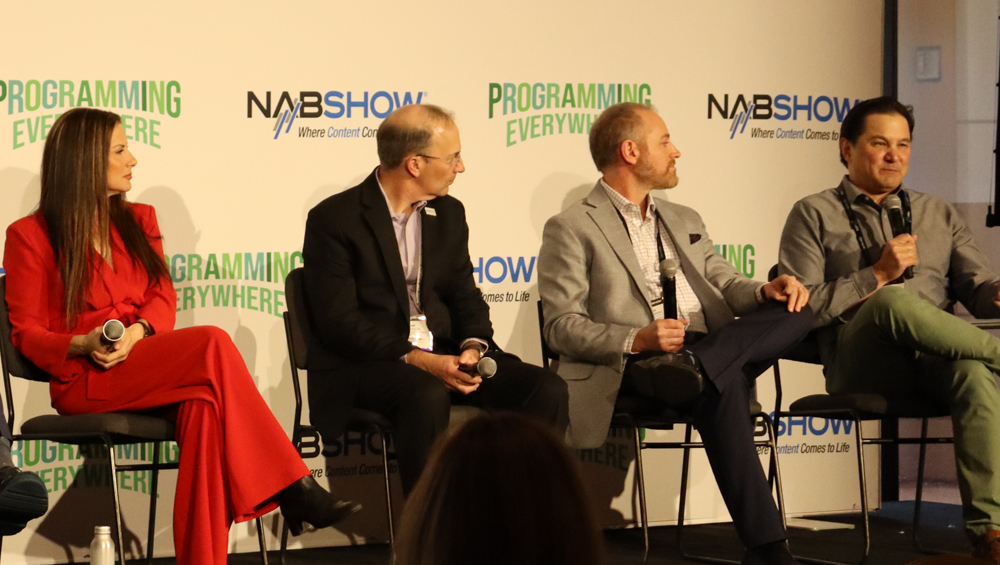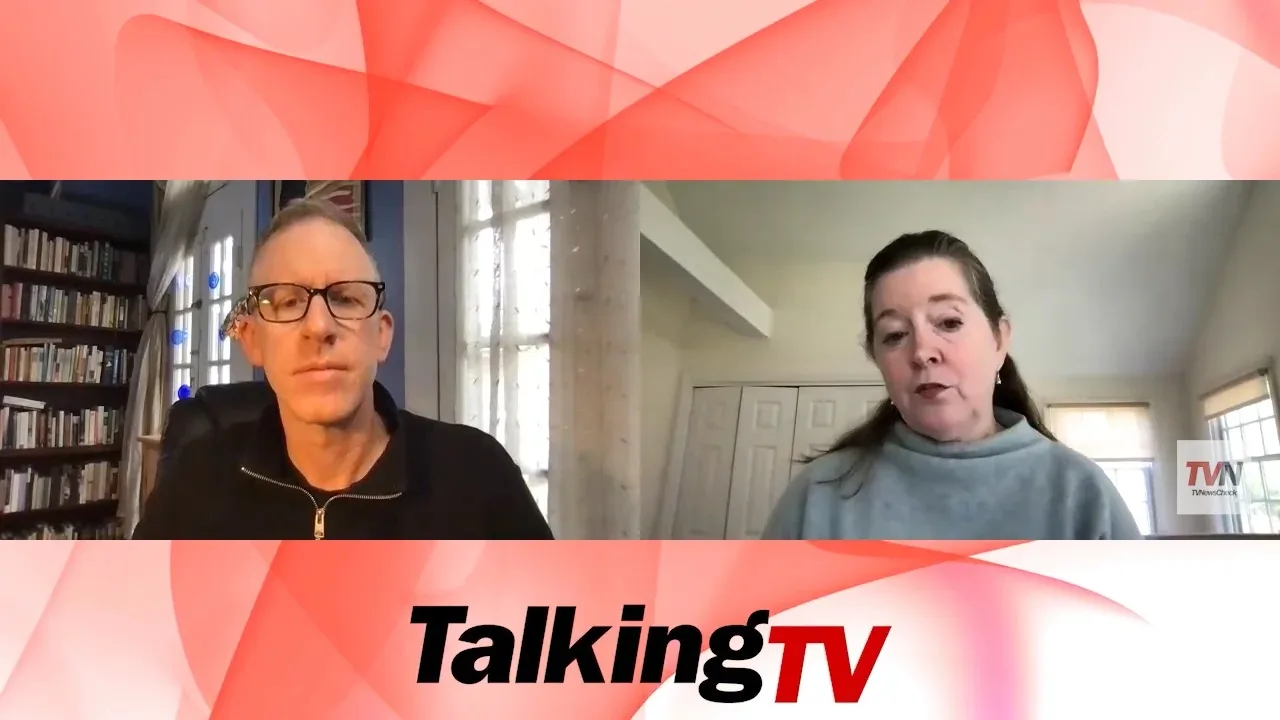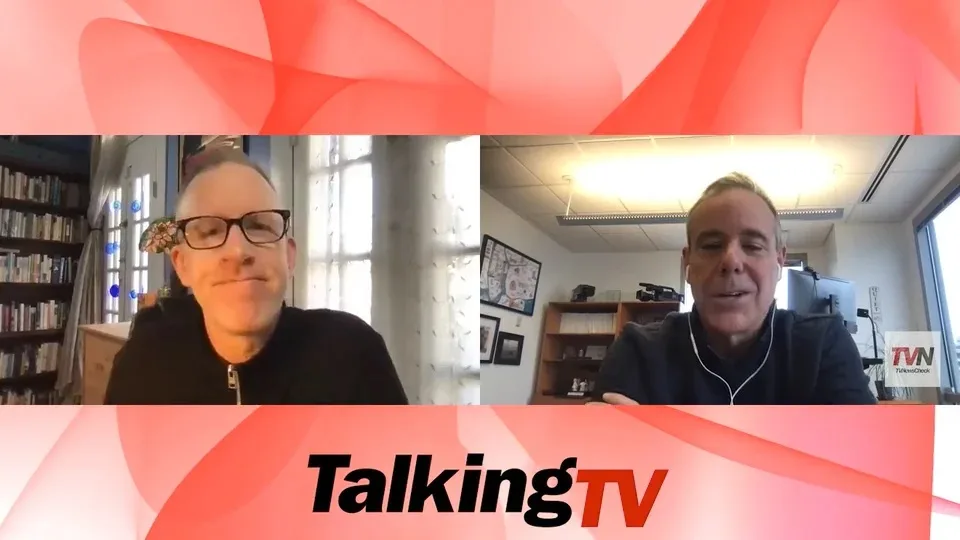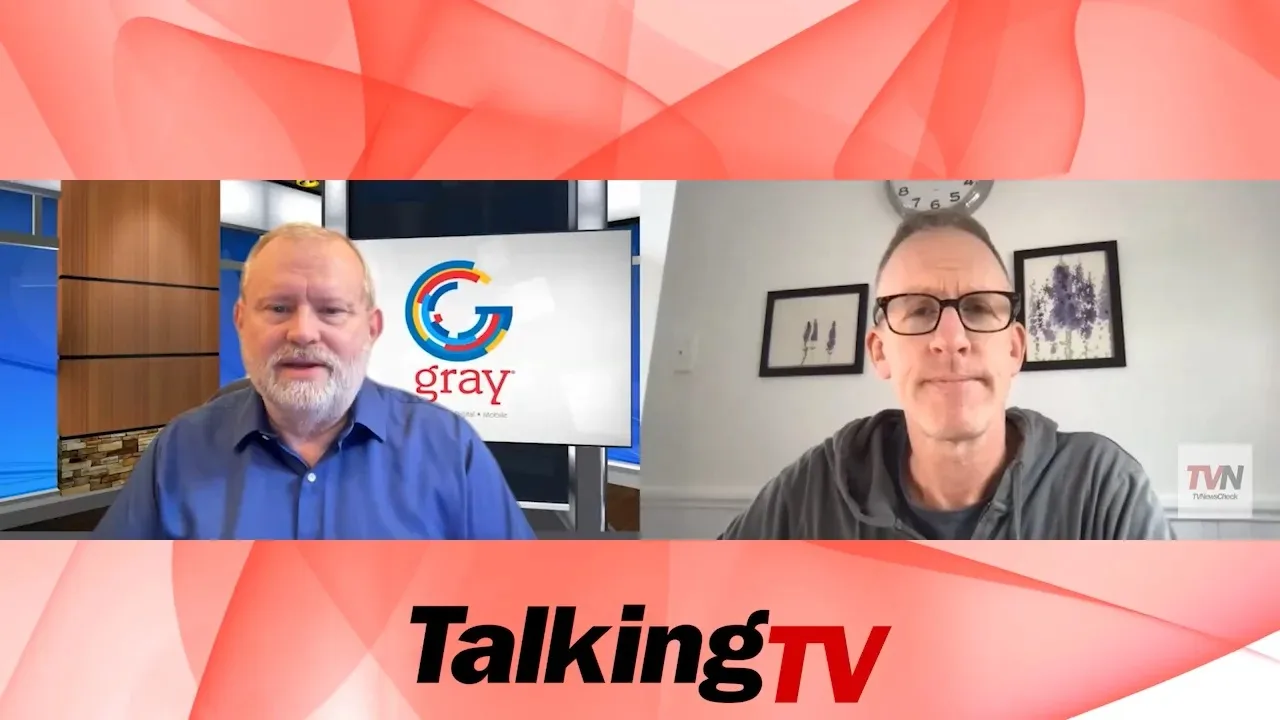
News Organizations Find ‘Pure Gold’ In Their Archives

LAS VEGAS — Content stuck on tape from 40 years ago, when digitized and properly tagged, can be “pure gold,” allowing broadcasters to create fresh pieces and sell rights to the video.
While preserving all that old video sounds like an overwhelming project, only by doing so can broadcasters learn what assets they have access to, industry experts said during the Mining the Archives for New Shows panel at TVNewsCheck’s Programming Everywhere event on April 16 at the NAB Show.
Fox did a proof-of-concept preservation project of 5,000 tapes to convert the magnetic tapes and apply metadata to old video, Ben Ramos, VP, Fox Archive, field and emerging technology at Fox News, said.
Some of the content was damaged, and about 5% of the original conversions failed, but what made it through the process “was just pure gold, amazing content that hasn’t seen the light of day in 40 years,” he said.
The organization saw a return on the investment within nine months, he added, and expanded the project by an additional 45,000 tapes.
“It’s not until you make an effort, touch it, make an effort, that’s when you find how many assets you really have,” Ramos said.
A 60-minute tape costs Fox about $100 for the “Cadillac version” of conversion and tagging, Ramos said, while the “Kia version” with no bells and whistles runs around $20. But the higher-end version can yield “so many products” such as three seconds of New York City taxi cabs from 1977 and frame grabs of famous people, he said.
But Fox is also “reaching out to old news directors and photographers and assignment editors and people who were there that day” and asking them to provide detailed metadata on the old videos, Ramos said.
“It’s onerous and expensive,” he said, but added that the company “thinks it’s necessary with this specific subset of product,” although the return on investment for this undertaking remains to be seen. He called it a “curated white glove service that AI can’t replicate” that makes the quality of Fox’s archive “that much more special.”
Overall, he said, he needs “around $100 million” to digitize all the archives, but the steps to date have led to significant funding for more preservation efforts.
Nora Zimmett, The Weather Channel president, news and original series, said her organization has thousands of tapes in climate-controlled storage and is in the process of digitizing them.
“I didn’t appreciate how much of a process that is,” she said. “It’s not just the process, but the metadata, where to put it, and where to store it and how much to download.”
The metadata is critical, she said. “Your archive isn’t worth anything if you can’t find video by keywords,” Zimmett said. “It’s one thing to digitize and put it in the cloud, it’s another if there’s a user experience so producers and users can find the materials.”
The Weather Channel is bringing archived content into its current projects.
“You can slice and dice it so many different ways,” she said. “One piece of content can have so many lives now that we are well beyond a linear environment.”
And there’s no time like the present to focus on making the archives easier to use. “Every hour that goes by, we’re creating more video,” although that is being better tagged in the moment, she said. “It’s like the roadrunner — you’re never caught up.”
Zimmett said she wonders whether licensing an organization’s content to a big studio devalues the content. “After you answer the question of ‘can we,’ sometimes we wrestle with ‘should we?’” she said.
Jon Accarrino, VP of transformation and strategic initiatives for Capitol Broadcasting Co., said much of his company’s early content was destroyed due to improper storage, but in 2014 CBC digitized all of its tapes. It took truckloads, he said, to move the 36,000 tapes that needed to be converted.
“We sent off all these trucks, had all that content digitized and they mailed back this tiny little hard drive” full of SD video, he said.
In 2007, the company moved into fully digital operations with Bitcentral’s Oasis, and as such is working through archiving that content as well.
“A lot of it is older, MPE2 formats we need to recompress and move to new archive system we’re building,” he said.
And while a lot of companies are opting to store their archives in the cloud as a primary location, despite the egress costs, CBC relies on two physical locations with cloud as the backup. CBC is soft-launching its archives soon, he said.
Sam Peterson, Bitcentral COO, said many of the industry’s archives are not very organized. “The state of metadata and how interconnected it is, and the process they used to get it there, runs the gamut,” he said. “Some are thinking for the long-term, but some do not have the foresight.”
It is important to work with the end in mind. “What do we want to end up with, and how do we get there are thing you have to work through pretty quickly to not make it worse,” he said.
Peterson cautioned that archives maintenance can be simple but is not complete once a project is over.
“Know it will be iterative approach” because tools are rapidly evolving, he said. “The main thing is not to lose any more content. Let’s get it captured, at least.”
Read more from Programming Everywhere here.































Comments (0)